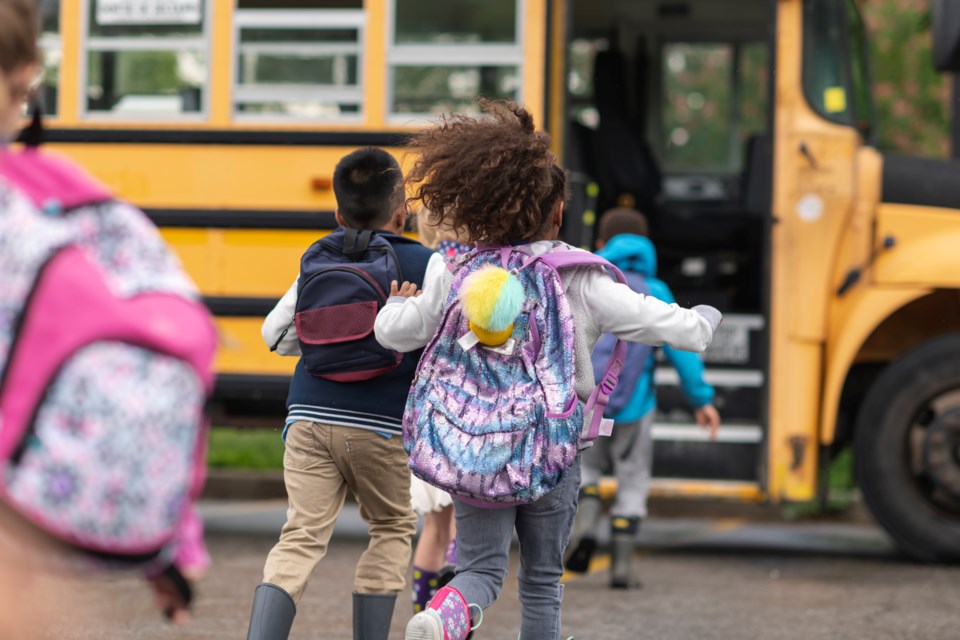The beginning of a new school year can bring out many emotions in children. While some children may feel excited to reunite with their peers, others may feel nervous about meeting a new teacher. Some children may be eager to join a new club and others may feel too self-conscious to try out for a sports team in front of others.
Children who are shy are particularly likely to feel uneasy as the new school year approaches. Shyness is characterized by nervousness and self-consciousness in new social settings, around new people or when being the centre of attention.
Many parents of shy children are likely to remark that their child has been this way for as long as they can remember. This is not surprising, as shyness is thought to be rooted in temperament — the early building blocks of personality that tend to emerge in infancy and toddlerhood and remain stable across development. Previous psychological research has noted that approximately 15 per cent of children are temperamentally shy.
How can I help my shy child as a new school year approaches?
For shy children, unfamiliarity and unpredictability can feed into feelings of fear and anxiety. The potential for new teachers and peers in a new environment may contribute to shy children’s fear.
For example, a shy child may wonder if their new teacher will be nice, if they will know the other children in their class, if they will know how to find their classroom and where their desk will be.
In the face of uncertainty about an impending event such as starting a new school year, the shy child may be prone to make negative predictions.
For example, they may predict that their new teacher will not be nice; they will not know anyone else in their class; and they will not be able to find their classroom and desk. Negative predictions about the future may result in a shy child feeling particularly nervous as a new school year approaches.
Preparing children
There are several approaches that might be helpful in preparing shy children as they get ready to head back to a new school year.
Eliminating some of the “unknowns” for shy children may help ease some feelings of anticipatory nervousness and anxiety. This could be supported through light and regular discussions with your child that help them make meaning by anticipating seasonal shifts or imagining or rehearsing known aspects of what entering a new school year will look like.
For many children, meeting a new teacher once would be sufficient to ease into the transition. Shy children may be slow to warm up in new social situations compared to their more outgoing peers.
If your child is in the same school as the year before, they may be wondering if there will be familiar faces or friends in class. Parents might consider strategies for helping children think about being open to new friendships, or exploring what it would mean to sustain relationships with close peers who aren’t in the same class (for example, by playing at recess or outside of school).
If the shy child is attending a new school, for example when beginning kindergarten, transitioning to a middle school or moving to a new school district, it would also be helpful to show the child their school (or if possible, classroom) and practise how to get there, or if possible, meet school staff or teachers in advance.
By exposing the shy child to their new environment, it is likely they will feel more at ease with the approach of the new school year.
Overall, increasing familiarity for the shy child may reduce negative predictions about the start of the new school year. This may allow the child to view their teacher as a source of comfort, allow them to connect with peers more easily, and make them feel more at ease in their new classroom or school.
When should I be worried about my shy child?
Shyness is a common, normative experience for many children (and adults!). In many cases, shyness and its associated quietness are not a cause for concern and may have associated benefits — such as carefully listening or observing, which could contribute to better understandings of social situations and skills to maintain friendships.
However, researchers have shown that shyness may interfere with school participation and can sometimes increase the risk for developing an anxiety disorder.
If a child’s shyness begins to interfere significantly with their ability to interact with other children, complete school work or participate in other aspects of daily life, it is possible that the child’s shyness may be indicative of a clinical concern that may require professional attention.
![]()
Kristie Poole does not work for, consult, own shares in or receive funding from any company or organisation that would benefit from this article, and has disclosed no relevant affiliations beyond their academic appointment.


